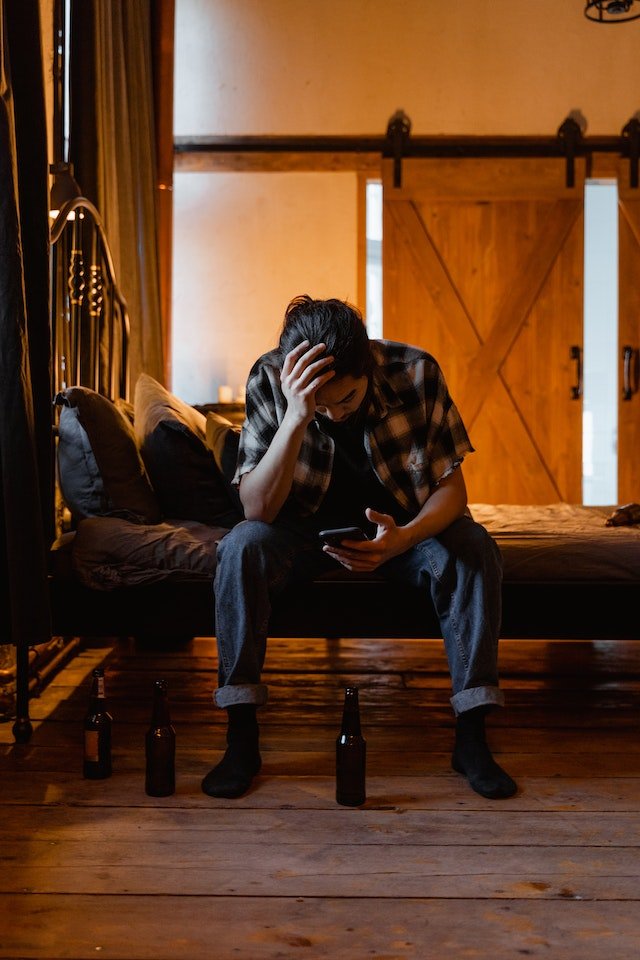Introduction
Mental health and stigma are one of the leading problems facing men worldwide. When a man expresses fear or apprehension, one can only imagine how many men are faced with stigmatizing statements such as – Be a real man. This is largely to blame for many men’s mental health issues today.
Men are substantially more likely than women to attempt suicide, according to surveys from throughout the world. Men died by suicide 3.56 [times] more often than women in the United States in 2018, according to the American Foundation for Suicide Prevention.
This is because many of the men suffer silently as a result of stereotypes like “Men don’t weep.” As a result, they give in and keep their feelings hidden from the rest of the world. Their emotions and feelings are constantly repressed, resulting in dissatisfaction and anger management problems.
Why are men barred from discussing their fears? When they show any evidence of fear or weakness, why are they continuously urged to “man up”? The answers lie in the following reasons.
Erroneous mental health training
You should know that men are often taught from childhood to be strong, to lead, and that showing emotion is a sign of weakness, not manhood. It then turns out tough for men to dissolve this in maturity because of the ideas and structures that have been implanted in their heads.
The assumption is that genuine guys don’t ask for help, and as a result, people who follow stereotyped masculine norms may be hesitant to seek counseling. There’s also a belief that talking about it won’t help. Unfortunately, ignoring mental health issues won’t make them go away.
Worldwide stigma
As earlier hinted, there is a tragic idea that guys are supposed to be tough and aggressive creatures and that any variation from the norm makes you ‘less of a man.’ This state of affairs stops men from being communicative and instead makes them violent, in the sense that they should not exhibit any female-like features. Other perceived girlish characteristics include expressing joy or sorrow through tears, and no guy wants to be likened to a woman for this reason. Many guys are imprisoned because expressing emotions is considered feminine.
Because they fear the derision and scorn they will receive from peers or acquaintances, many males choose to cave in and quietly toil with obstacles. The dread of being labeled a knucklehead surpasses their mental health deterioration.
Men's depressive symptoms not recognized

Men and women have distinct reactions to depression. Women are more likely to show signs of despair. This is confirmed by experts at the National Institute of Mental Health, who noted that some males with depression hide their emotions and appear angry, irritable, or violent, but many women appear sad or express melancholy.
Self-medicating with alcohol and other substances is a typical indication of depression among males, according to the organization, and it can exacerbate mental health problems. They also point out that some signs of depression are physiological, such as a racing heart, stomach problems, or headaches, and that men are more prone than women to seek medical help for. As a result, recognizing depression as a problem is extremely difficult.
Inflated Egos
Many males take pride in their fearlessness and untouchability. They never want to appear weak or vulnerable. Even when faced with extreme circumstances, this thinking prevents individuals from seeking assistance.
Prescriptive, age-old ideas about gender are likely both part of the cause of these egoistic tendencies that precede mental health issues in men and the reason why men are put off from seeking professional help.
Options for dealing with the problem
Encourage people to learn about mental health
Many young men believe that tears are only for the weak, and they mock their friends who cry when they are in agony. Because they, too, are victims of the apathetic and corrupted mindset, some men are accountable for producing melancholy and frustration in their peers.
You must aggressively engage males in mental health events and programs as a culture to debunk the stigma. It’s important to tell them that it’s fine to be unhappy. They must realize that asking for help is a sign of maturity and strength, not immaturity and weakness.
When men and boys see their fathers, brothers, teachers, and friends modeling resilience and mental health self-care, stigma dissolves. You will then have a culture of healthy and satisfied males that are eager to fully harness all of their assets and potential. This will be alongside declines in stigma and mocking connected with mental health.
Be more alert and aware of our colleagues
Only a quarter of men would openly tell their male friends if they were dealing with their mental health, according to a study conducted by the Time-to-Change Organization. The study reported that 39% of them felt it was difficult to recognize the indicators that a friend is ready to open up. This is a call to action for both males and females to pay close attention to their male counterparts’ moods and behavior.
You must keep an eye out for them because they are more prone to communicate passively through reduced dialogue and other means. Our brothers will receive the care and assistance they require if we keep a close check on them. If you notice something is off with your pal or your jokes aren’t landing, inquire about it. Always keep in mind that the phrases “grow up” and “man up” is never useful.
You must recognize that males are also human beings with needs and emotions that must be met. They are entitled to an opportunity to express their doubts without fear of losing their manhood or their reputation. There is therefore a critical need to develop safe spaces for men to express their concerns and anxieties, as this will result in stronger working and personal relationships. Such relationships will be marked by effective communication and mutual understanding.
Inspire guys to share their feelings
Men are encouraged to be strong, to exhibit no emotion, and to suppress any displays of vulnerability, according to cultural norms. This is a dangerous misconception since mental illnesses can make people feel vulnerable, afraid, insecure, and weak. Men who try to conform to these stereotypes risk suppressing their feelings.
It is therefore critical that we create an environment that encourages men to share their fears, concerns, and anxieties. It’s even more crucial to reassure males that they should listen to their friends and associates. They will be able to live better and more fulfilling lives as a result of this.

In Conclusion
All in all, mental health and stigma will continue to be one of the leading problems facing men. However, there is a light at the end of the tunnel through your recognition of the main factors leading to the problem. These can be redressed through the simple and practical steps above.








